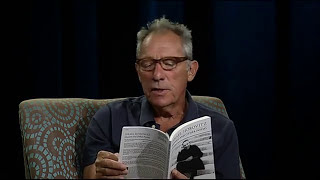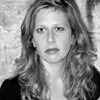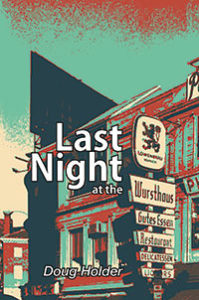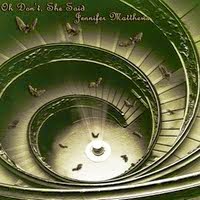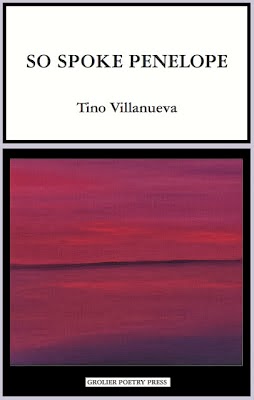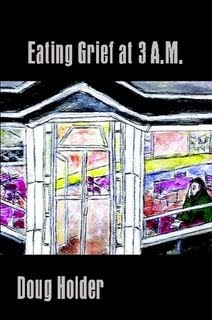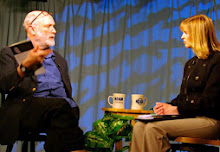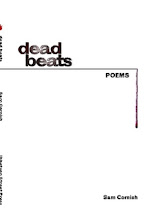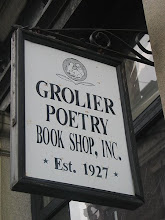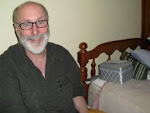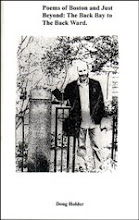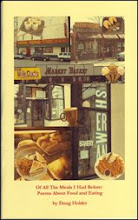Poet Afaa Michael Weaver Visits Littleton’s “Wilderness House Literary Retreat.”
November arrived at “The Wilderness House Literary Retreat” and brought brightly colored foliage to its scenic surroundings, as well as poet and playwright Afaa Michael Weaver for an informal lunch and conversation for retreat members.
Afaa Michael Weaver is a tenured professor of English at Simmons College in Boston, and is a former NEA fellow, a Fulbright Scholar, a PEW Fellow, and the founder of the “Simmons International Chinese Poetry Conference.” He has penned 9 Collections of poetry, including: “Multitudes,” and a full length play: “Rosa,” which was produced at the Venture Theatre in Philadelphia.
Weaver, 54, hails from a working-class section of Baltimore, and worked in factories for much of his early adult years. But even during this time, he was a freelance writer for “The Baltimore Sun,” and started a small literary press: “Seven Sun Press,” that published a broadside of his, as well as work by such poets as: Lucille Clifton, Frank Marshal Davis (A Harlem Renaissance writer) and the surrealist Andre Codrescu. While at “The Baltimore Sun,” he wrote reviews of books by: James Baldwin, Allen Ginsberg’s (first poetry collection), and Alice Walker, whose book he panned.
In 1985, a lot happened for the budding poet. He released his first poetry collection “Water Song,” he got a NEA grant as a result of the book, and got accepted in Brown University’s MFA program. Leaving Baltimore and a good factory job, he was thrown into the elite world of Brown University.
Still, amidst a student body with all these privileged “children,” Weaver, a grown man in his mid-30’s, thrived. He studied with the noted playwright Paula Vogel, and actually graduated with an advanced degree in Playwriting.
Weaver, told the group at the retreat that he once met the late, celebrated Afro-American playwright August Wilson on a train to New Haven. Wilson, who wrote “Gem of the Ocean,” “Ma Rainey’s Black Bottom,” and other works, was a role-model for Weaver. Like Weaver, Wilson started out as a poet. On that fateful train ride, Wilson asked Weaver if he could sit with him, after Weaver casually complimented him on his work. As Weaver described it they immediately hit it off and talked and laughed all the way from Newark to New Haven. He gave Wilson “Water Song,” and Wilson confided to him that he really had wanted to be a poet, if the truth be known.
Weaver has known his share of hardship. He has survived three marriages, the death of a young son, and a near fatal heart condition. After being a nomad adjunct professor in NYC, and later on the faculty of Rutgers University, he took the advice of poet Michael Brown of “Cantab Lounge Slam Poetry” fame, and approached Simmons College about a job. He secured a teaching position, and now is a tenured professor. He founded the “Simmons International Poetry Conference,” which is the largest such gathering outside of mainland China. Weaver, has had a long love affair with the Chinese language and poetry ever since he was given a book: “Dao De Jing,” translated by Laozi from a friend in the factory he worked in. Weaver, a low-key presence, finds the Chinese sensibility compatible with his own modest approach to life.
Weaver told the audience that a Harvard scholar of some note came to his Chinese conference and told him “Harvard should have done this!” But you have to move fast to keep up with Weaver. Throughout his life, this accomplished artist has worked outside the box, and decidedly ahead of the pack.
Doug Holder
Saturday, November 19, 2005
Thursday, November 17, 2005
The Charms of Vaudeville Meet The Charms of the Writers Festival.
The charms of an old Vaudeville-era theatre are never lost on me. There is always the haunting tapping presence of the "song and dance men," the proverbial echo of "the fat lady," who closed the show with a smile and a torch song, the well-appointed banana peel that made the most puffed-up of men fall to the ground in spastic indignity. So I felt a welcoming aura when the "Somerville News Writers Festival," commenced at the old "Somerville Theatre," on a mild night in November. And like any Vaudeville variety show we had an infinite variety of talent. Jennifer Matthews’ beautiful, lilting voice wafted to the rafters, and punctuated the particular energy of each of the readers. 80 years ago BARATUNDE, the host for the event, might have affected a straw bowler and a dandy of a cane, as he sprayed the audience with a steady stream of jokes, and comic asides. Much of the reading was laced with humor. From Steve Almond’s riff on being "ugly," to Robert Olen Butler’s strange obsession with severed heads, the audience never
had to wait long to laugh.
I was thinking at the reception in our modest editorial offices at 21A College Ave., how amazing it was to have such world-class writers like: Sue Miller, Franz Wright, Afaa Michael Weaver, Lan Samantha Chang, and all the others, milling around our story board, that housed a simple spread of cheese and crackers. And equally amazing was how willingly they accepted the offer to read at our festival, and for the most part for little or no monetary compensation.
Most importantly however, the festival met the approval of my mother’s critical eagle eye. She told me after: "Great show. Fascinating people." I think that’s the kind of seal of approval both Tim Gager and I were looking for.
--Doug Holder
The charms of an old Vaudeville-era theatre are never lost on me. There is always the haunting tapping presence of the "song and dance men," the proverbial echo of "the fat lady," who closed the show with a smile and a torch song, the well-appointed banana peel that made the most puffed-up of men fall to the ground in spastic indignity. So I felt a welcoming aura when the "Somerville News Writers Festival," commenced at the old "Somerville Theatre," on a mild night in November. And like any Vaudeville variety show we had an infinite variety of talent. Jennifer Matthews’ beautiful, lilting voice wafted to the rafters, and punctuated the particular energy of each of the readers. 80 years ago BARATUNDE, the host for the event, might have affected a straw bowler and a dandy of a cane, as he sprayed the audience with a steady stream of jokes, and comic asides. Much of the reading was laced with humor. From Steve Almond’s riff on being "ugly," to Robert Olen Butler’s strange obsession with severed heads, the audience never
had to wait long to laugh.
I was thinking at the reception in our modest editorial offices at 21A College Ave., how amazing it was to have such world-class writers like: Sue Miller, Franz Wright, Afaa Michael Weaver, Lan Samantha Chang, and all the others, milling around our story board, that housed a simple spread of cheese and crackers. And equally amazing was how willingly they accepted the offer to read at our festival, and for the most part for little or no monetary compensation.
Most importantly however, the festival met the approval of my mother’s critical eagle eye. She told me after: "Great show. Fascinating people." I think that’s the kind of seal of approval both Tim Gager and I were looking for.
--Doug Holder
Monday, November 14, 2005
Interview with Naomi Chase: A poet in search of the messiah
Naomi Feigelson Chase is a poet, journalist, fiction writer and a former resident of Somerville, who has written three books of poetry including: “The Messiah Comes to Somerville,” and most recently: “Gittel: The Would be Messiah.” She has written for the “New York Times,” the “Village Voice,” and other publications. She has penned numerous short stories and her poetry has appeared in such journals as: “Sojourner,” “Ploughshares,” and the “Cream City Review.”
Doug Holder: What was going on in your life when you penned the collection: “Waiting For The Messiah in Somerville.”
Naomi Chase: I moved to Somerville after my husband died. So I was in a very depressed state. With the poem “”Waiting For The Messiah in Somerville,” I worked on it for years until I finally got it right. I was struck by the whole feeling in Somerville. I don’t know if it is the same today. I bought a two family house in Somerville with another woman and I think everyone felt we were whores. No one had ever seen this before. Somerville, in the 70’s, had no condominiums. People were very unfriendly. If you hadn’t lived there forever then you just didn’t fit in. It was not a creative time. I could barely get out of bed. It eventually spurred me to write a lot of things about it, like this title poem. It was sort of a “coming back to life poem.”
DH: The concept of the “Messiah” comes up in your work a lot. Can you talk about your interest with this concept?
NC: I really don’t know where this interest came from. The title of my new book is “Gittel: The-Would -Be Messiah” It is about a young woman who is told by God that she is going to be the Messiah. She eventually turns him down. She feels he has caused evil in the world by giving man power over all creatures and other men. I am very taken by the idea that people are sitting around waiting for the Messiah. This seems to be a constant recurring theme not only in Judaism, but in other religions. I grew up not as a religious Jew. My grandfather was a Hebrew teacher. He was a compelling person. But I don’t think he believed in God. For me, my writing has been one way that I dealt with what all this meant to me.
DH: Do you think the Messiah will actually come?
NC: No. I don’t think so. I think he would have come already and knocked out George Bush. (laughs)
DH: You were involved with the Cambridge, Mass. small press “Garden Street.”
Can you talk about your involvement with the press and how it got its start?
NC: I started the press with Jean Flanagan and Marilyn Zuckerman.. I really didn’t start writing poetry until I was an adult in my 40’s. I had a book of poems, as did Jean. I met Jean at MIT, as well as Marilyn Zuckerman. The three of us decided to start a press. We thought this was the only way to get published. The press is no longer around. After we published a book by each of us, I moved to the Cape, and Marilyn moved to Seattle. It was hard to stay in touch. Running a small press is a money-loser, and requires a tremendous amount of work. After awhile I wanted to concentrate on my own work. The press produced about ten titles. Each of us had two books we published, plus about 3 or 4 other titles from other poets.
DH: In your collection “One Blue Thread,” you have a character named: “Gittel,” a Jewish girl, living in the “pale of settlement,” who has an ongoing conversation with God.
Where did you get the idea for this?
NC: I was taking a train from Boston, and passing through Connecticut, when I noticed a church spire. I thought: ‘What would happen if the Messiah landed on a church spire?” And that’s the way it started. Once this idea captured me I started writing about this young woman who was constantly asking questions of God about the meaning of life. I started reading a lot about mysticism, and I discovered that all religions have this mystic bent. So I tried to sort it out.
DH: Do you think God is a feminist?
NC: Gittel is a feminist, and she is angry with God. She tells him that the myth of “Adam and Eve,” has done terrible things to the idea of woman. So God is not a feminist. No male God is.
DH: Can you tell me about your experience writing for “The Village Voice/’
NC: I started in the 70’s. I started writing for them because I was living in a building with Jules Feiffer. I ran into him in the elevator. I had written for the “Herald Tribune,” and he said if I wrote for them I could write for the “Voice.” He had me call Dan Wilson, and soon after I was writing about politics, and also children’s issues. I was paid $25 an article, which I used to pay for 25 copies of the “Voice,” so I could see my name in print. But it was really something to write from the ‘Voice.’
DH: Can you make a living as a writer or poet?
NC: It is very hard to make a living as a writer. I always worked in PR and Journalism. You compromise your work if you depend on your writing as your living. You usually live on nothing. I didn’t want to do that.
Doug Holder. “Gittle” The Would-Be Messiah” can be purchased at the “Grolier Book Shop” in Harvard Square, or through AMAZON.COM
Naomi Feigelson Chase is a poet, journalist, fiction writer and a former resident of Somerville, who has written three books of poetry including: “The Messiah Comes to Somerville,” and most recently: “Gittel: The Would be Messiah.” She has written for the “New York Times,” the “Village Voice,” and other publications. She has penned numerous short stories and her poetry has appeared in such journals as: “Sojourner,” “Ploughshares,” and the “Cream City Review.”
Doug Holder: What was going on in your life when you penned the collection: “Waiting For The Messiah in Somerville.”
Naomi Chase: I moved to Somerville after my husband died. So I was in a very depressed state. With the poem “”Waiting For The Messiah in Somerville,” I worked on it for years until I finally got it right. I was struck by the whole feeling in Somerville. I don’t know if it is the same today. I bought a two family house in Somerville with another woman and I think everyone felt we were whores. No one had ever seen this before. Somerville, in the 70’s, had no condominiums. People were very unfriendly. If you hadn’t lived there forever then you just didn’t fit in. It was not a creative time. I could barely get out of bed. It eventually spurred me to write a lot of things about it, like this title poem. It was sort of a “coming back to life poem.”
DH: The concept of the “Messiah” comes up in your work a lot. Can you talk about your interest with this concept?
NC: I really don’t know where this interest came from. The title of my new book is “Gittel: The-Would -Be Messiah” It is about a young woman who is told by God that she is going to be the Messiah. She eventually turns him down. She feels he has caused evil in the world by giving man power over all creatures and other men. I am very taken by the idea that people are sitting around waiting for the Messiah. This seems to be a constant recurring theme not only in Judaism, but in other religions. I grew up not as a religious Jew. My grandfather was a Hebrew teacher. He was a compelling person. But I don’t think he believed in God. For me, my writing has been one way that I dealt with what all this meant to me.
DH: Do you think the Messiah will actually come?
NC: No. I don’t think so. I think he would have come already and knocked out George Bush. (laughs)
DH: You were involved with the Cambridge, Mass. small press “Garden Street.”
Can you talk about your involvement with the press and how it got its start?
NC: I started the press with Jean Flanagan and Marilyn Zuckerman.. I really didn’t start writing poetry until I was an adult in my 40’s. I had a book of poems, as did Jean. I met Jean at MIT, as well as Marilyn Zuckerman. The three of us decided to start a press. We thought this was the only way to get published. The press is no longer around. After we published a book by each of us, I moved to the Cape, and Marilyn moved to Seattle. It was hard to stay in touch. Running a small press is a money-loser, and requires a tremendous amount of work. After awhile I wanted to concentrate on my own work. The press produced about ten titles. Each of us had two books we published, plus about 3 or 4 other titles from other poets.
DH: In your collection “One Blue Thread,” you have a character named: “Gittel,” a Jewish girl, living in the “pale of settlement,” who has an ongoing conversation with God.
Where did you get the idea for this?
NC: I was taking a train from Boston, and passing through Connecticut, when I noticed a church spire. I thought: ‘What would happen if the Messiah landed on a church spire?” And that’s the way it started. Once this idea captured me I started writing about this young woman who was constantly asking questions of God about the meaning of life. I started reading a lot about mysticism, and I discovered that all religions have this mystic bent. So I tried to sort it out.
DH: Do you think God is a feminist?
NC: Gittel is a feminist, and she is angry with God. She tells him that the myth of “Adam and Eve,” has done terrible things to the idea of woman. So God is not a feminist. No male God is.
DH: Can you tell me about your experience writing for “The Village Voice/’
NC: I started in the 70’s. I started writing for them because I was living in a building with Jules Feiffer. I ran into him in the elevator. I had written for the “Herald Tribune,” and he said if I wrote for them I could write for the “Voice.” He had me call Dan Wilson, and soon after I was writing about politics, and also children’s issues. I was paid $25 an article, which I used to pay for 25 copies of the “Voice,” so I could see my name in print. But it was really something to write from the ‘Voice.’
DH: Can you make a living as a writer or poet?
NC: It is very hard to make a living as a writer. I always worked in PR and Journalism. You compromise your work if you depend on your writing as your living. You usually live on nothing. I didn’t want to do that.
Doug Holder. “Gittle” The Would-Be Messiah” can be purchased at the “Grolier Book Shop” in Harvard Square, or through AMAZON.COM
Sunday, November 13, 2005

Saturday, November 12, 2005
"The poetic look"
by Steve Glines
When I'm in my car or other places where I can't write a thought down I get a constant stream of good ideas. Most of the ideas are only good for a paragraph or so but some of them are really food for thought and some are just fleeting fragments that only leave me the feeling that I may have had a good idea . But the idea itself is far, far gone. Some ideas start out as a germ of a thought, embed themselves under a particularly sensitive piece of very thin skin and gnaw at you.I had one of those thoughts driving home from the bagel-bards meeting last Saturday morning. Someone said to me that I didn't look like a poet. It took an hour to realize that I didn't know if I should take offence or not. The idea had embedded itself. That thought struck me as odd. What does a poet look like? I remember hanging out at the Grolier book shop when I was in my late teens and early twenties (in the early 1970's), there were lots of people who made sure they looked like poets, complete with a poetic swagger, tortured soul all.A "poet" of the middle Grolier period (1968-1975) wore black, black pants, a black turtleneck, a black beret and posed, whenever possible, in public, as if struck that very moment by the muses arrow, a black thought. Somehow poetry turned very dark in the 1970's. That was, I suppose, a natural evolution from the beat stuff I loved, which was both profound and real. The 1970's stuff was dark for the sake of being dark. I used to think the "poets" that hung around the Grolier in the 1970's confused darkness with profundity.I arrived in Cambridge Massachusetts in September 1970 with everything I owned strapped on the back of a Yamaha 250 motorcycle. I was 18 years old, an orphan, unemployed and without a home. I should have been in college but only Oberlin College way out in noplace would take me but only if I could find $3,000. I couldn't. Scholarships, if you can call them that, went to jocks. So I rode my bike to Boston where I thought there might be a literary life. I found the Grolier before I found a place to live.If you were an unknown 18 year old in a place like the Grolier Bookshop in 1970 you would have been made to feel if not completely unwelcome, then certainly way out of place. There were the real poets posing and want-to-be thought of as poets posing. Robert Bly would routinely make a grand entrance with his multi-colored poncho (and for weeks ponchos were in) then Robert Creeley would arrive with a pack of fawning grad students plucked from the sanctified halls of Harvard. The ever-present Else Dorfman would be photographing the scene. You were in if she made a point of shooting you.I was out and so would have been Gordon Carnie, except that the crusty old man owned the Grolier. Most of the fawning and posing went on about the grand old man of letters without his acknowledgement or so much as nod to anyone but his select few. I couldn't afford to buy books so I, like a lot of other people, treated the Grolier like a library. I could sit in a corner for hours, so long as there wasn't a reception or some other event that filled the place, and read to my hearts content.Every few weeks I'd buy a chapbook or some other cheap item to pacify my conscience. I honestly don't think Gordon cared one way or the other if he ever sold a book. If Gordon never noticed me sitting in the corner reading most afternoons he eventually noticed my habit of buying older poets. I think the first thing he said to me was that he liked my taste and that he didn't like any poets after e. e. cummings. A few days later we had a long chat. It turns out that he used to summer about a mile or so from my mothers house in Nova Scotia and he knew all the neighbors and characters of Poplar Hill. That started a friendship that lasted until his death a few years later.Once I counted Gordon as a friend I made it a point of saying hello when I walked in and he would grunt something back that I took for a hello. The posers didn't bother me after that. Gordon made me feel welcome even if I wasn't a "know poet." I came to realize that much of the posing was for my benefit. If I was a friend of Gordon's then I was in the inner-circle. How did that happen? How did he do that? Even Elsa Dorfman has a picture of me someplace that used to hang way up on the upper right side as you walk into the Grolier. When Louisa Solano bought the Grolier after Gordon died she took down all the photos and replaced them with even higher bookracks. I can't blame her but it's not been the same since.What happened? I'm not sure. I didn't like the academic poets, the "Yale younger poets," that hung around the Grolier and neither did Gordon. He told me to visit the Stone Soup poets run by Jack Powers. I did and have visited that venue off and on over the years. I dropped out of the Grolier scene and indeed haven't been inside the store in a decade. I dropped out of the poetry scene for almost 20 years to raise a family and earn a living.So what does a poet look like? What was meant by "not looking like a poet." The answer was something like . "well poets are . thinkers, you know deep . profound .." Apparently a poet does not look fat, middle aged, reasonably well dressed (although I'm wearing a ripped, hooded sweatshirt and sneakers today) and not subject many deep thoughts . at least not in public. I guess I'll have to stop keeping my thoughts to myself.
Steve Glines-- Steve Glines is the founder of the "Wilderness House Literary Retreat" http://wildernesshouse.org and a member of the "Breaking Bagels With The Bards" group that meets in the basement of "Finagle-A-Bagel" in Harvard Square--every Saturday at 9AM. (All Welcome!)
Subscribe to:
Posts (Atom)


